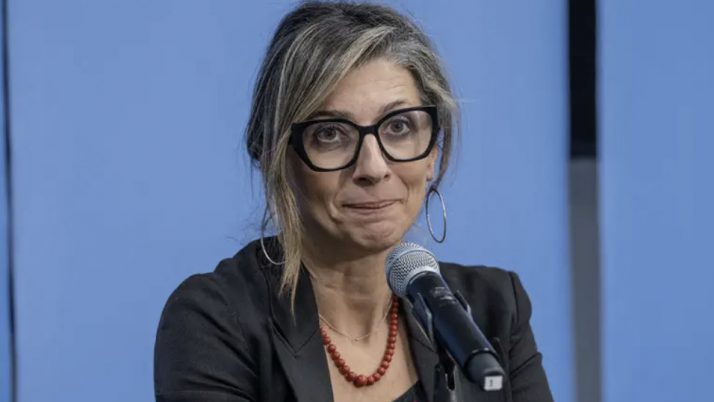UN Official Francesca Albanese Denounces US Sanctions as ‘Scary,’ Vows to Continue Her Work
Francesca Albanese, the controversial United Nations Special Rapporteur on the “occupied Palestinian territories,” has sharply criticized newly imposed US sanctions against her, calling them “scary” and warning they set a “dangerous precedent” for international human rights work.
In an interview with Reuters, Albanese said the measures, which include asset freezes and potential travel restrictions, represent a serious escalation.
“There are no red lines anymore,” she said. “It might block me from moving around. It will have a chilling effect on people who normally engage with me, because for American citizens or green card holders, this is going to be extremely problematic.”
Despite the sanctions, Albanese emphasized she has no intention of stepping back.
“My plans are to continue what I’ve been doing,” she added.
The sanctions were announced on Wednesday by US Secretary of State Marco Rubio, who designated Albanese a “specially designated national,” prohibiting all US citizens and entities from doing business with her.
Rubio accused Albanese of promoting antisemitism, expressing sympathy for terrorism, and engaging in hostile rhetoric toward the United States, Israel, and the broader West. He cited her calls to the International Criminal Court (ICC) to pursue arrest warrants against Israeli leaders as “further proof of her unfitness” for her role.
“Francesca Albanese has spewed unabashed antisemitism, supported terror-linked narratives, and tried to weaponize international institutions against democratic states,” Rubio said in a statement. He also claimed that she sent “threatening letters” to dozens of multinational companies and institutions, pressuring them to cooperate with ICC investigations targeting Israel.
Global Reactions and Ongoing Controversy
The decision has drawn sharp condemnation from various international actors sympathetic to Albanese’s work. The European Union, a key supporter of the UN’s human rights framework, criticized the move.
“We deeply regret the decision to impose sanctions on Francesca Albanese,” EU spokesperson Anouar El Anouni said during a press briefing in Brussels. “The EU strongly supports the United Nations human rights system.”
The UN Human Rights Council (UNHRC) recently extended Albanese’s mandate for another three years, despite widespread criticism of her views and accusations of bias. Since her appointment in 2022, Albanese has faced repeated scrutiny for past social media posts referring to the “Jewish lobby” allegedly controlling US foreign policy—comments widely condemned as antisemitic.
Although she denied any antisemitic intent and claimed the remarks were “mischaracterized,” her rhetoric has continued to provoke outrage—particularly following the Hamas attack on Israel on October 7, 2023, in which over 1,200 people were killed and 250 taken hostage.
Albanese has since called for Israel’s actions in Gaza to be viewed in “context,” describing the Hamas attack as a “response to decades of Israeli aggression.” She has also accused Israel of genocide, likened its government to the “Third Reich,” and compared Prime Minister Benjamin Netanyahu to Adolf Hitler—statements which have deepened the perception of her institutional bias against the Jewish state.





